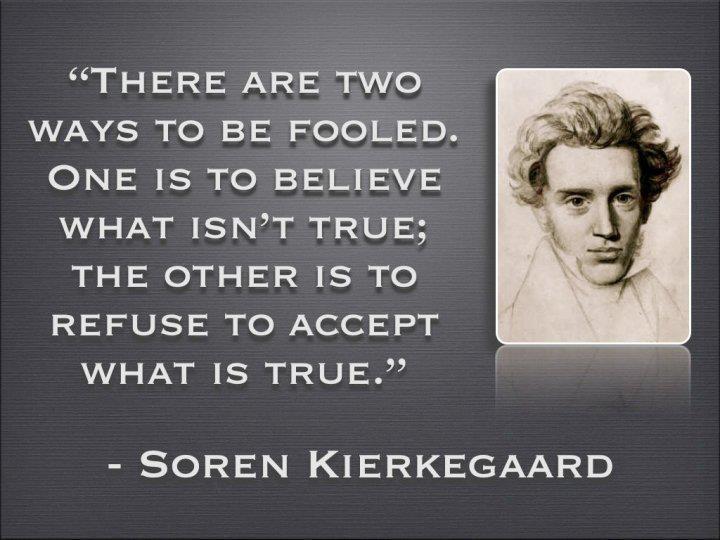
We’re losing it, America. We’re losing our country, our pride, our sense of fairness and rightness, our justice and freedom, our uniqueness—our everything. What happened? How are we losing our way after only three and a half generations as a nation? One word: truth. We’ve mangled, devalued, redefined and diluted it.
We’ve warped our perception of truth. We treat it à la carte: selecting what we like, rejecting what we don’t. We replace it with “my truth,” which is rooted in desire rather than reality. Instead of discerning genuine truth with our heads, we embrace desirable falsehoods with our hearts. When we do this consistently, we lose the ability to think critically. We base our beliefs on our fickle feelings rather than on immutable truth.
When we ignore truth’s essential nature—its objectivity—we lose the ability to weigh opinions and assertions against it. Without truth’s constancy, we lose a fixed reference point. We’re like mariners navigating without the North Star.
True believers
It’s not that others mean to mislead us. Most don’t do so consciously or nefariously. Almost all are true believers. They swapped truth for their truths long ago. Most are professors, politicians and pundits who’ve had a lot of practice in front of podiums and cameras.
What makes them effective in eroding our trust in truth is their passion. They believe what they believe more than we believe what we believe. It’s a power play. College professors tell students what is true; they don’t teach them to think for themselves. Defending viewpoints through debate is no longer part of the curriculum.
Professors are so sure of their beliefs and so unwilling to allow spirited dissent and sealed so tightly in their echo chambers that they propagandize rather than prepare students for the real world. Same goes for celebrities, senators and talking heads.
Is it any wonder that our social media interactions are drenched in talking points and accepted opinions? Facebook and Twitter are not platforms for respectful discourse or persuasion. Without honest debate and respect for differing viewpoints, many resort to name-calling and shutdown words like troll and hater and racist and bigot.
Dark days and a sure hope
When great nations and empires fall, they erode and crumble from within. How a people handles truth reflects their national character and determines their future.
As Americans, how have we treated truth? By justifying abortion on demand and for convenience as a woman’s “choice?” By discarding basic biology and science by pretending one’s feelings about one’s gender is a matter of choice rather than design? Do we continue trampling truth by rewriting history for political purposes and ignoring context and common sense?
It’s not too late to right our national ship. To do so, we must change course from a heading that’s bearing us toward the shoals of subjectivity to the surety and safety of time-honored truth. As in all things, Jesus is the answer: “I am the way, the truth, and the life. No one can come to the Father except through me.” Jesus invites us to embrace truth and, with it, freedom. “Then you will know the truth, and the truth will set you free.”
God is the source of all truth. Rejecting what he says is true and replacing it with subjective, desire-driven falsehoods is a form of rebellion. Accepting the true and the beautiful reality of God leads to joy and peace. When we know there is a firm foundation of truth and goodness and joy, we can rest in it—and in a God who, in truth, loves his children with a perfect and eternal love.









